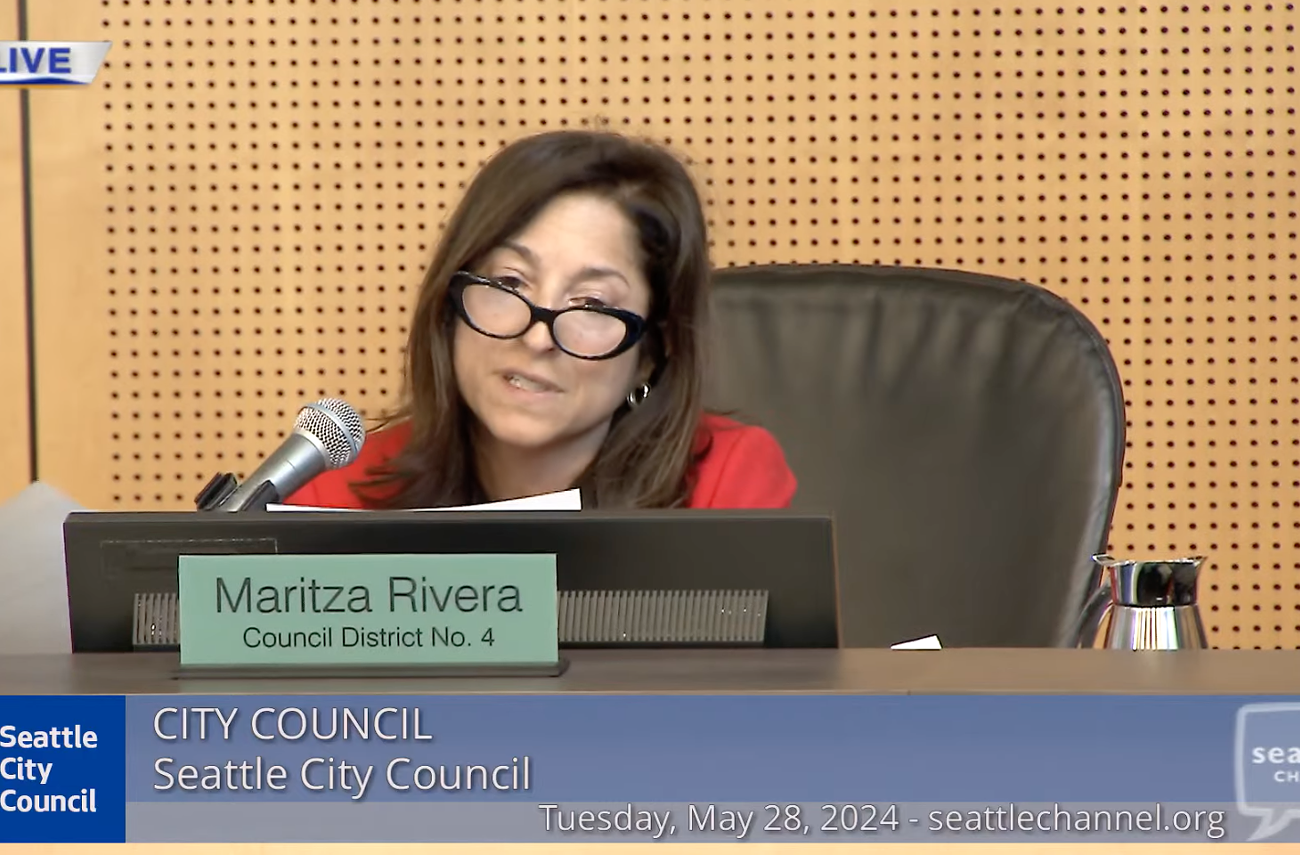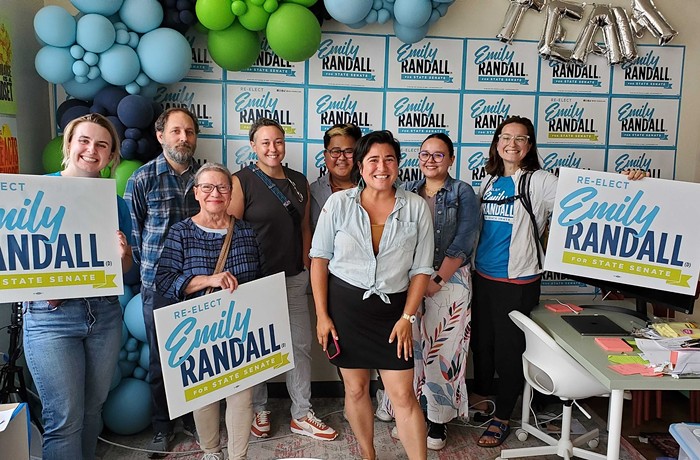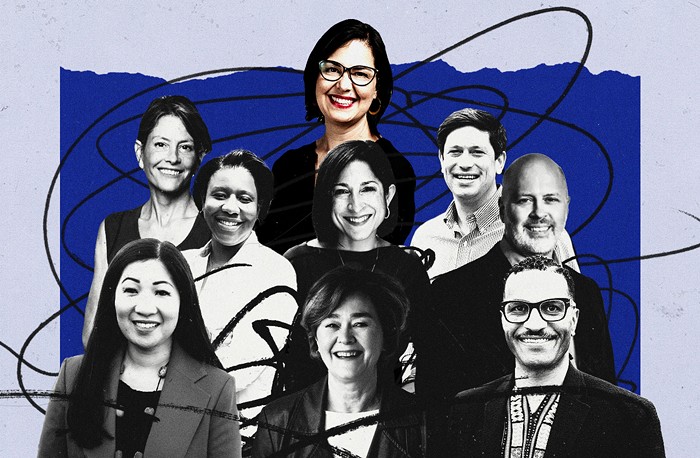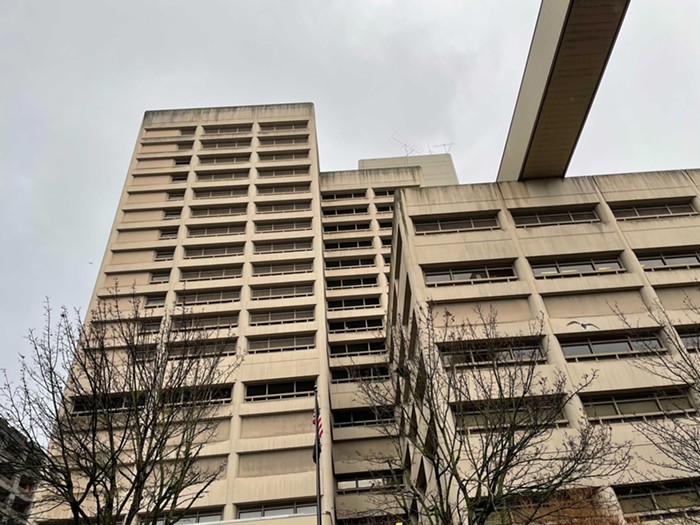For more than three hours, BIPOC-led organizations shamed Council Member Maritza Rivera for her last-minute amendment to rug-pull funding for the beloved Equitable Development Initiative (EDI). EDI, passed in 2016, aims to curb displacement by empowering BIPOC-led community groups to build affordable housing, community centers, and other capital projects. They called Rivera, her supportive colleagues, and the amendment racist, discriminatory, ridiculous, preposterous, outrageous, appalling, tone-deaf, short-sighted, misguided, and ugly.
Instead of “listening to community” and bending to their will, as she vowed to do on the campaign trail, Rivera motioned to delay the bill for a week to give her time to combat alleged “disinformation” and “fear-mongering” about her amendment.
The council voted 6-3 to delay it until next week. Council Member Dan Strauss, as Budget Chair, voted no because he did not want to delay a small technical bill when Rivera could mess with EDI during the supplemental budget process this summer. Tammy Morales and Joy Hollingsworth voted no because they won’t support it, whether they have extra time to mull it over or not. Morales, who called on the public to oppose the amendment, expressed her disappointment that Rivera would drag out the debate.
“Frankly, if you want to propose legislation that rolls back commitments made to Black and brown communities, at least have the courage to stand by your legislation and vote on it or acknowledge that you made a mistake and withdraw it,” Morales said.
The Hill Rivera Died On
On Friday afternoon before a long weekend, Rivera proposed an amendment on the carry forward ordinance, a small technical bill that basically confirms previous budgetary promises. The amendment would pause $25.3 million that the previous council already promised in the 2024 budget, jeopardizing more than 50 capital projects–mostly Black-led, mostly in the South End—such as 130 units of affordable housing in Africatown’s Midtown plaza, a community center for Cham refugees, and Estelita’s social justice library on Beacon Hill.
The proviso would block the Office of Community Planning and Development (OPCD) from releasing those funds until it spent the $53.5 million the program already has, provided detailed analysis on the projects EDI funds, and, after all that, secured a majority council vote of approval. The OPCD would have until September before Rivera’s amendment would siphon the $25.3 million to fill the general fund deficit. Given how long these kinds of projects take, it seems unrealistic that OPCD could disperse those funds in four months.
Rivera claims that the amendment would actually not hurt the 50+ current projects. Rather, she is just concerned “that there is no transparency as to how the department plans to move the majority of the EDI projects awarded to date to completion.” It is unclear how threatening to reabsorb their money would help bring those projects to completion.
EDI projects take a long time, according to the organizations who testified, because BIPOC-led groups are not typically experienced developers. For example, Chief Seattle Club started receiving funding from EDI before it ever built housing.
Plus, as Morales noted during the meeting, the council does not apply this level of scrutiny to the Office of Housing or to Seattle Department of Transportation. “It is interesting to me that the programs that are meant to assist with reversing harm done to communities of color are more closely scrutinized than other programs in the city and are consistently at risk of being defunded more than other programs in the City,” Morales said.
Rivera may claim she’s not trying to kill EDI, but it’s not the first time the council killed an anti-displacement and affordable housing initiative. Earlier this month, the council rejected Council Member Tammy Morales’s Connected Communities Pilot program, which would have given development incentives for low-income, community-centered housing at no cost to the City. The Mayor also fucked over marginalized residents by eliminating all new anti-displacement strategies from his broadly disappointing Comprehensive Plan.
She’s So Ronald Reagan-Coded
Beyond that, in the face of an inflation-driven $250 million budget shortfall, Rivera’s amendment continues to cement the council’s commitment to the wealthy, to corporations, and to fiscal conservatism at the expense of marginalized communities suffering under the pressures of the ongoing housing crisis.
Not only does Rivera’s proviso jeopardize BIPOC projects, it also initiates the council’s raid of the JumpStart payroll tax, a tax on the City’s very largest corporations specifically dedicated to funding affordable housing, Green New Deal initiatives, and economic development. About $19.8 million of EDI’s $25.3 million comes from the JumpStart payroll tax. About 9% of JumpStart must fund EDI by law.
Most of the city council ran on an anti-tax platform, despite knowing full well the City faces a quarter-billion budget shortfall in 2025. The anti-tax advocates that got the newbies elected, including the Seattle Metropolitan Chamber of Commerce, have suggested the City move JumpStart funds into the general fund, defunding affordable housing and climate initiatives instead of taxing big business.
Several commenters anticipated Rivera and the council using the deficit as justification.
“I understand that there's a budget shortfall,” said Jill Freidberg, co-founder of Wa Na Wari. “It's the city council's job to be creative in solving problems like budget shortfalls, not to reinforce structural inequities because it's the easiest way to close a budget shortfall. The City has been solving budget shortfalls on the backs of Seattle's Black communities for decades. Go find the money somewhere else this time.”
Public commenters suggested the council could find money to fill the deficit in the Seattle Police Department. After all, the council just approved 24% retroactive raises in the Seattle Police Officers Guild contract.
Council candidate Alexis Mercedes Rinck said in order to address the deficit equitably, the City must implement new progressive revenue. Luckily for the council, their predecessors left them a menu of options to help fill the budget hole. However, Budget Chair Dan Strauss told The Stranger that the council will not consider new revenue until the Mayor hands down his budget draft this fall.
Public commenters will likely return to City Hall to defend EDI next week. It is unclear what Rivera will say to convince those she scorned that she’s not trying to “slap” communities in the face or balance the City budget on the backs of Black people.




















